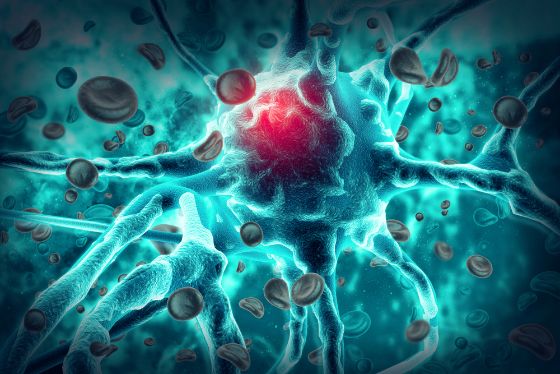Lymphoma is cancer that starts in the lymphatic system. Lymphoma can grow quickly and spread to other parts of the body. It can cause symptoms like swollen glands, fever and tiredness. Some types of lymphoma can be cured. Others are more serious and can lead to death. It is not clear what causes lymphoma, but it may be caused by changes in the DNA of white blood cells called lymphocytes.
One change on its own is not enough to cause lymphoma, but many different changes can build up over time. These changes may also make the lymphocytes less effective at fighting infections. This can cause the lymph nodes, spleen and liver to swell. In some people, these changes lead to a type of cancer called Hodgkin or non-Hodgkin lymphoma. It is not clear what makes some people more likely to develop the changes that cause lymphoma, but having a close relative who has had Hodgkin or non-Hodgkin disease slightly increases your risk. It is also possible that some medicines can increase your chance of getting lymphoma, but this link is not well understood.
Some types of lymphoma can spread to other tissues and organs in the body, including the bones, lungs and liver. The lymphoma may then be referred to as systemic lymphoma or advanced lymphoma. Systemic lymphoma can be hard to treat and may return after treatment.

A doctor will examine you and ask about your symptoms. The doctor will then order a series of tests. These might include blood tests and imaging tests. These tests will help doctors decide what treatment is best for you.
If the doctors think you have a lymphoma, they will use different treatments to try to cure it. The type of lymphoma you have and where it is located will affect your chances of recovery.
The doctors who diagnose and treat lymphoma are called haematologists or oncologists. Your care team might also include a radiation oncologist and a surgeon. Other allied health professionals who might be involved in your care might be nurses, physiotherapists or psychologists.
The doctors will consider your age, general health and the stage of your lymphoma when deciding what treatment to give you. The stage of your lymphoma describes how far the cancer has spread and helps doctors know what type of treatment to give you. It is based on whether the lymphoma is in your neck or armpit, or in your groin and tummy (abdomen). It is also based on whether the cancer is B-cell or T-cell lymphoma and whether it is high or low grade. High-grade lymphomas are more difficult to treat than low-grade lymphomas.








